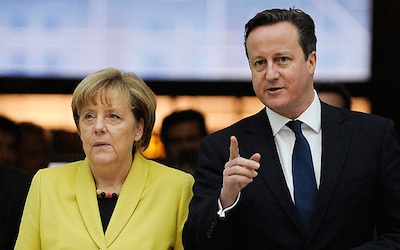
By Brian Feeney (for Irish News)
‘Quis custodiet ipsos custodes?’ Who will guard the guards themselves? It’s a question which first appears in Juvenal’s Satires in the context of marital fidelity. The advice is to bolt the door on the woman and keep her in but then the question arises, how do you trust her guards? What if she seduces them and they take advantage of their position?
Which immediately bring to mind MI5, 515, GCHQ, military intelligence and other secretive bodies the British government operates. In the aftermath of the Paris atrocities there’s the usual kneejerk reaction from government and its secret more draconian action.
On Monday David Cameron met a range of security and intelligence people to review Britain’s preparedness for events like those in Paris. He emerged all gung-ho saying the security services need more powers.
There should be “no means of communication which we cannot read”, he said. He promised a “comprehensive piece of legislation” so that there would be no “safe spaces” suspected terrorists could use to communicate.
Note the use of ‘suspected’. We know from experience here that means anyone and everyone. As long as 30 years ago everyone in the north who drove a car was on the army’s database, some several times if you gave different dates of birth for badness at road checks.
We know that 30 years ago the British government was listening to all phone calls between Ireland and Britain through an aerial near Chester.
We know because a NIO minister was hauled over the coals for letting that information slip at the Irish embassy in London and London picked up the Irish diplomat’s report being transmitted to Dublin. And a fat lot of use it all was.
We know from the documents in the Public Record Office that when Britain faced an existential threat from the French Republic in the 1790s spying mushroomed exponentially. Dublin Castle was getting first-class information about Presbyterian subversives in Belfast including details about a guy called Wolfe Tone and his travels by sea. What use did they make of it? None.
A year after the Special Branch was established in 1883 to engage in surveillanceon the Fenians, theFenians blew up its headquarters in London and CID HQ too.
Invariably the response to each such action is the demand for more powers. Last week Andrew Parker the director-general of MI5 appealed for more powers to intercept communications. Facebook and other social media would be the area she’s interested in.
Almost immediately Sir Malcolm Rifkind chairman of the Intelligence and Security Committee was on BBC supporting Parker’s appeal. Yet Rifkind is supposed to be scrutinising and checking the security services, not acting as cheer leader. If the question is, who guards the guards, then in the British system it’s obvious someone like Rifkind doesn’t engender much confidence.
Luckily at present there’s no chance that Cameron will be able to push through the sort of legislation he wants because of opposition from the Lib Dems.
Again luckily there’s a sunset clause in the 2013 Justice and Security Act so the whole issue can be examined again and if luck still holds there may still be enough opposition to prevent a snooper’s charter emerging. Westminster’s Joint Committee on Human Rights has raised concerns about the present counter-terrorism bill going through the Lords. They should take more evidence about what happened here when the security services had free rein especially in the 1980s.
In effect MI5 and RUC Special Branch were deciding who lived and who died to protect their own covert agents in the IRA, UVF and UDA. So much for parliamentary oversight.
Nowadays the major problem is that as far as the Regulation of Investigatory Powers Act is concerned most MPs haven’t a clue what electronic surveillance can do or what its scope is.
In other words they’re incompetent to oversee what GCHQ and MI5 are doing or are capable of doing. The final danger is that politicians don’t have the guts to refuse any request from the security services in case there’s an atrocity and they’re accused of withholding powers that could have prevented it.
Fills you with confidence doesn’t it?
![[Irish Republican News]](https://republican-news.org/graphics/title_gifs/rn.gif)
![[Irish Republican News]](https://republican-news.org/graphics/title_gifs/harp.gif)

